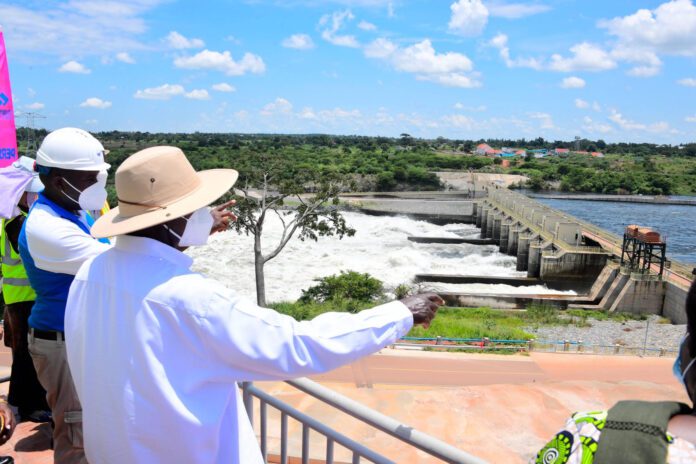
President Yoweri K. Museveni has emphasized the need for modern, cheap electricity in the country as a way to have successful businesses and improve the economy of the country.
The President said this during the commissioning of the 600 MW Karuma Hydro Electric Power Plant on September 26, 2024, which was expected to be commissioned in 2019 but was delayed due to various reasons.
He emphasized that increased generation of cheap electricity would bring hope to Ugandans by lighting up villages and fostering economic growth.
“Improved access to power would lead to the development of industrial parks in regions like West Nile, thereby enhancing local economies and creating jobs. All the factories and dams need educated, skilled, and healthy people to work there,” said the president.
Museveni further revealed that there is a need for integration with the neighboring countries so that when goods are produced, there is a ready market from outside the country to consume the surplus because they cannot all be consumed by Uganda’s population.
Dr. Ruth Nankabirwa Ssentamu, the Minister of Energy and Mineral Development, in her remarks at the same event highlighted the impact of this project on Uganda’s electricity generation capacity and national development.
She said all Ugandans should have access to electricity by 2030, emphasizing that energy access is crucial for socio-economic transformation.
“We now know you need power for schools, hospitals, homes, and businesses,” she stated.
Nankabirwa assured the Karuma Project Affected Persons (PAPs) that they were going to be compensated, adding that the re-settlements of the Lapono community have been budgeted for UGX30 billion, with each house costing approximately UGX100 million shillings.
The funding for the Karuma Hydro-power Plant primarily comes from a combination of loans and government contributions, with 85% of the project cost financed through a soft loan from the Exim Bank of China and the remaining 15% of the funding provided by the Ugandan government.














